The Marriage of Maria Braun (German: Die Ehe der Maria Braun) is a 1978 West German film directed by Rainer Werner Fassbinder. The film stars Hanna Schygulla as Maria, whose marriage to the soldier Hermann remains unfulfilled due to World War II and his post-war imprisonment. Maria adapts to the realities of post-war Germany and becomes the wealthy mistress of an industrialist, all the while staying true to her love for Hermann. The film was one of the more successful works of Fassbinder and shaped the image of the New German Cinema in foreign countries. The film is the first installment of Fassbinder's BRD Trilogy, followed by Lola and Veronika Voss.
| The Marriage of Maria Braun | |
|---|---|
Theatrical poster | |
| Directed by | Rainer Werner Fassbinder |
| Produced by | Michael Fengler |
| Written by | Peter Märthesheimer Pea Fröhlich |
| Starring | Hanna Schygulla Klaus Löwitsch Ivan Desny Gisela Uhlen |
| Music by | Peer Raben |
| Cinematography | Michael Ballhaus |
| Edited by | Rainer Werner Fassbinder (as Franz Walsch) Juliane Lorenz |
Production company | Albatros Filmproduktion Westdeutscher Rundfunk Trio Film |
Release date | May 22, 1978 (Cannes Film Festival) 20 February 1979 (Berlinale) 23 March 1979 (West Germany) |
Running time | 115 minutes |
| Country | West Germany |
| Language | German, English |
| Budget | 1.975 million DM |
| Box office | 4 million DM (West Germany) $1.8 million (USA, within the first six weeks) |
Screenplay
The film starts in Germany in 1943. During an Allied bombing raid Maria (Hanna Schygulla) marries the soldier Hermann Braun (Klaus Löwitsch). After "half a day and a whole night" together, Hermann returns to the front. Postwar, Maria is told that Hermann has been killed. Maria starts work as a hostess in a bar frequented by American soldiers. She has a relationship with an African-American soldier Bill (George Byrd), who supports her and gives her nylon stockings and cigarettes. She becomes pregnant by Bill.
Hermann, who was not killed, returns home to discover Maria and Bill undressing each other. A fight between Hermann and Bill ensues. When Hermann seems in danger, Maria unintentionally kills Bill, striking his head with a full bottle. Maria is tried by a military tribunal and expresses her love for both Bill and Hermann; Hermann is so struck with Maria's devotion that he takes the blame for the killing and is imprisoned. Maria likely aborts her pregnancy and asks her doctor to promise to maintain the grave. On the train home, Maria catches the eye of a wealthy industrialist, Karl Oswald (Ivan Desny). Oswald, an older man, offers her a position as his assistant, and shortly thereafter Maria becomes his mistress to "maintain the upper hand". Maria visits Hermann again and tells him about the development, promising that their life will start as soon as he is released. Maria becomes wealthy and buys a house.
Oswald visits Hermann and offers to make him and Maria heirs to his wealth if Hermann deserts Maria after his release. Neither man tells Maria of their agreement. On release, Hermann emigrates to Canada and sends Maria a red rose each month to remind her he still loves her. Following Oswald's death Hermann returns to Germany and to Maria. When Oswald's will is read by the executor Senkenberg (Hark Bohm) Maria hears about Oswald's agreement with Hermann. Distressed, Maria lights a cigarette and dies from an explosion of gas after she'd extinguished the burner of the stovetop she'd used to light a previous cigarette. Whether this is intentional or not is not clearly demonstrated.
- Hanna Schygulla as Maria Braun
- Klaus Löwitsch as Hermann Braun
- Ivan Desny as Karl Oswald
- Gisela Uhlen as Mother
- Elisabeth Trissenaar as Betti Klenze
- Gottfried John as Willi Klenze
- Hark Bohm as Senkenberg
- George Byrd as Bill
- Claus Holm as Doctor
- Günter Lamprecht as Hans Wetzel
- Anton Schiersner as Grandpa Berger
- Sonja Neudorfer as Red Cross nurse
- Volker Spengler as Train conductor
- Isolde Barth as Vevi
- Lilo Pempeit as Mrs. Ehmke
- Bruce Low as American at the conference
- Günther Kaufmann as American on the train
- Karl-Heinz von Hassel as Prosecuting attorney
- Hannes Kaetner as Justice of the Peace
- Kristine de Loup as Notary
Writing and pre-production
The idea for The Marriage of Maria Braun can be traced to the collaboration of Rainer Werner Fassbinder and Alexander Kluge on the unrealized television project The Marriage of our Parents (Die Ehen unserer Eltern), which was developed after the critical success of the omnibus film Germany in Autumn. Fassbinder worked on a draft screenplay together with Klaus-Dieter Lang and Kurt Raab and presented it in the early summer of 1977 to his longtime collaborator Peter Märthesheimer, who at that time was working as a dramaturge at the Bavaria Film Studios. In August 1977 Märthesheimer and his partner Pea Fröhlich, a professor of psychology and pedagogics, were commissioned to write a screenplay based on the draft together. Although it was Märthesheimer's and Fröhlich's first screenplay their knowledge of Fassbinder's works allowed them to match the screenplay to the characteristic style and structure of Fassbinder's other works. Fassbinder changed only a few details in the completed screenplay, including some dialogue and the end of the film. Instead of Maria Braun committing suicide in a car accident she dies in a gas explosion, leaving it unclear whether she committed suicide or died accidentally.
The producer of the film was Fassbinder's longtime collaborator Michael Fengler with his production company Albatros Filmproduktion. Fengler planned to start shooting the film in the first half of 1978, as Fassbinder's next project Berlin Alexanderplatz was scheduled for June 1978. As Fassbinder was embroiled in a controversy over his stage play Der Müll, die Stadt und der Tod he was not ready for starting to shoot the film and withdrew to Paris, where he worked on the screenplay for Berlin Alexanderplatz. Fengler was dreaming of an international star cast for the film. On his suggestion Fassbinder and Fengler visited Romy Schneider and asked her to play the role of Maria Braun. Due to Romy Schneider's alcohol problems, fickleness, and demands, the role was then given to Hanna Schygulla, her first collaboration with Fassbinder in four years. Yves Montand also showed interest in the film, but wanted to play Maria's husband Hermann and not - as suggested by Fassbinder and Fengler - the industrialist Oswald. As the role of Hermann was already promised to Klaus Löwitsch Montand was ultimately not offered any role.
Production
From its beginnings, the financing of The Marriage of Maria Braun was precarious. Albatros Filmproduktion only contributed 42,500 DM, the public broadcaster Westdeutscher Rundfunk 566,000 DM, the German Federal Film Board 400,000 DM and the distributor guaranteed another 150,000 DM. This forced Fengler to find another financing partner, offering Hanns Eckelkamp's Trio-Film a share in the film in December 1977. Fengler had promised Fassbinder's Tango-Film a share of 50 percent of the film profits, but as Fengler - by offering Trio-Film a share in the film - effectively oversold the rights only 15 percent of the film right ultimately remained with Fassbinder. Fassbinder subsequently referred to Fengler as gangster and it led to litigations against Fengler that continued even after Fassbinder's death.
Shooting began in January 1978 in Coburg. Bad-tempered and quarrelsome, Fassbinder shot the film during the day and worked on the script to Berlin Alexanderplatz during the night. In order to sustain his work schedule he consumed large quantities of cocaine, supplied by the production manager Harry Baer and the actor Peter Berling. According to Berling this was the main reason why the film went over the budget, as the cash for the cocaine was coming from Fengler.
In February 1978 the budget was reaching 1.7 million DM, and two most expensive scenes - the explosions at the beginning and at the end of the film - had not yet been shot. By this time Fassbinder had learned about Fengler's deal with Eckelkamp and the overselling of the film rights. He felt deceived and broke with his longtime collaborator Fengler. He demanded the status of a co-producer for himself and obtained an injunction against Fengler and Eckelkamp. Fassbinder fired most of the film crew, ended the shooting in Coburg at the end of February and then moved to Berlin, where he finished shooting the last scenes. Consequently, the biographer Thomas Elsaesser called the production of the film "one of Fassbinder's least happy experiences" and Berlin "one of the decisive self-destructive episodes in Rainer's life".
Release
In parallel to the preparations for the production of Berlin Alexanderplatz Fassbinder worked with film editor Juliane Lorenz on the editing and post-production of The Marriage of Maria Braun. The failure of Despair at the Cannes Film Festival in May 1978 spurred Fassbinder to prepare an answer print overnight and to present the film on 22 May 1978 to German film producers in a private screening. Attended by, among others Horst Wendlandt, Sam Waynberg, Karl Spiehs, Günter Rohrbach and the majority shareholder of the Filmverlag der Autoren, Rudolf Augstein the screening was a success. Eckelkamp invested a further 473,000 DM to pay off the debts of the film production and became the sole owner of the rights to the film. Owning all film rights, Eckelkamp negotiated a distribution deal with United Artists, thus outmaneuvering the Filmverlag der Autoren, which was usually distributing Fassbinder's films.
Hoping that The Marriage of Maria Braun might be successful at the 1979 Berlin International Film Festival Eckelkamp started a marketing campaign and decided to release the film theatrically in March 1979. Commissioned by Eckelkamp, the author Gerhard Zwerenz novelized the film. It was published in several weekly installments in the magazine Der Stern from March over a period of three months, thus increasing public interest in the film. The official premiere of the film was on 20 February 1979 during the 29th Berlin International Film Festival. The West German theatrical release was on 23 March 1979. At the Berlin International Film Festival Hanna Schygulla won the Silver Bear for Best Actress, which did not satisfy Fassbinder who expected to win the Golden Bear.
Contemporary reception
German film critics responded very positively to the film and praised the film's combination of artistic values with mass appeal. In the weekly newspaper Die Zeit Hans-Christoph Blumenberg called the film "the most accessible (and thus most commercial) and mature work of the director". Karena Niehoff wrote in the daily newspaper Süddeutsche Zeitung that The Marriage of Maria Braun "is a charming and even amusing film, at the same time extraordinarily artful, artificial and full of twists and turns".
Hanna Schygulla was praised by many film critics. In the Süddeutsche Zeitung on 23 March 1979 Gottfried Knapp wrote that the director gave her a magnificent opportunity to display her acting talent, and that her character, emotions, charm and energy had an enormous effect. The film and Hanna Schygulla were also praised by foreign film critics. In The New Yorker David Denby called Schygulla "an improbable cross between Dietrich and Harlow". Schygulla, too, was the runner-up for the National Society of Film Critics Award for Best Actress that year, losing to Sally Field for Norma Rae.
François Truffaut commented in 1980 in the Cahiers du cinéma that with this film Fassbinder "has broken out of the ivory tower of the cinephiles", and that the film is "an original work of epic and poetic qualities" influenced by Godard's Contempt, Brecht, Wedekind and Douglas Sirk and particularly touching is his idea of a man who looks on men and on women with equal fondness. The French film critic Jean de Baroncelli discussed the allegorical qualities of the film in Le Monde on 19 January 1980 and wrote that the film presents Mari
Watch movie The Marriage Of Maria Braun online on Amazon
Watch movie The Marriage Of Maria Braun online
Watch The Movie On PrimeSubhayathra Full HD Movie Download
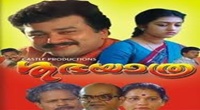
Go Full HD Movie Download

Intaqaam Full HD Movie Download
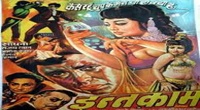
Junglee Full HD Movie Download
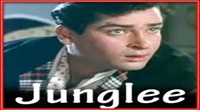
Shriman Satyawadi Full HD Movie Download
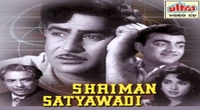
Woh Main Nahin Full HD Movie Download
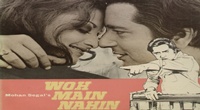
Rafoo Chakkar (2008) Full HD Movie Download
.jpg)
Sardari Begum Full HD Movie Download
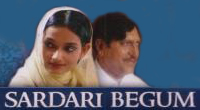
The Hidden Eye- Teesri Aankh Full HD Movie Download

Andaaz Apna Apna Full HD Movie Download
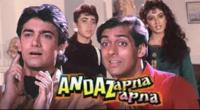
Srimathi Priyanka Full HD Movie Download
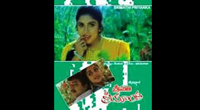
Sruthilayalu Full HD Movie Download
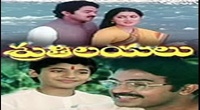
Shavukaru Full HD Movie Download
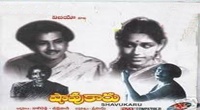
Badle Ki Jwala Full HD Movie Download
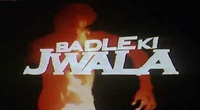
RocknRolla Full HD Movie Download
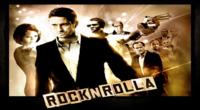
Bharthavudyogam Full HD Movie Download
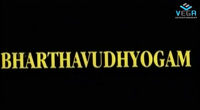
Padavi Pramanam Full HD Movie Download
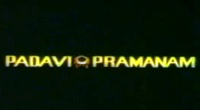
Killar Jhansi Full HD Movie Download
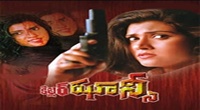
Micheal Madana Kama Raju Full HD Movie Download
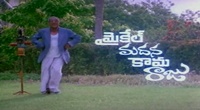
Anyay Abichar Full HD Movie Download
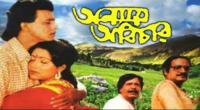
Ishaqzaade (2012) Full HD Movie Download
.jpg)
Download latest Movie from bollywood
- 1> baaghi 3
- 2> THE SKY IS PINK MOVIE FULL STORY AND REVIEW
- 3> Luka Chuppi
- 4> TO ALL THE BOYS I’VE LOVED BEFORE
- 5> Kabir Singh
- 6> Street Dancer 3D
- 7> Simmba
- 8> Gone Girl
- 9> The Girl Who Lived
- 10> Ludo
- 11> DILWALE DULHANIA LE JAYENGE
- 12> GUILTY
- 13> The Godfather
- 14> Adventures of Rusty
- 15> Sooryavanshi
- 16> Satyameva Jayate 2
- 17> Thappad
- 18> Bhool Bhulaiyaa 2
- 19> KGFChapter 2
- 20> Mardaani 2
- 21> Pinjar
- 22> Shivaji maharaj
- 23> Ek Villian 2
- 24> Hungama 2
- 25> Divergent
- 26> Mumbai Saga
- 27> The Internship
- 28> HIT (telugu)
- 29> Panga
- 30> The perfect date
- 31> 16 December
- 32> Gopala Gopala (Telugu)
- 33> Brahmastra
- 34> Gangubai Kathiawadi
- 35> Manmadhudu
- 36> Nenu local
- 37> Mahanati
- 38> Shatamanam bavathi
- 39> Lagaan
- 40> After
- 41> MOM
- 42> Shamshera
- 43> Raguvaran BTech
- 44> Khakee
- 45> The villain
- 46> OM
- 47> Mr. perfect
- 48> Bueatifull mind
- 49> Hichki
- 50> Gabbar Singh
- 51> Jogi
- 52> Before Sunrise
- 53> Before Sunset
- 54> Before Midnight
- 55> The Big Bull
- 56> Top Gun: Maverick
- 57> The Purge
- 58> The Sky is Pink
- 59> Laxmmi Bomb
- 60> Sadak 2
- 61> Sufna
- 62> Prithviraj
- 63> PK
- 64> Coolie No 1(2020)
- 65> Black Widow
- 66> Dear Zindagi
- 67> Dil Bechara
- 68> PHIR HERA PHERI
- 69> WAR
- 70> Dostana
- 71> RRR: Roudram Ranam Rudhiram
- 72> Maidan
- 73> Dabbang 3
- 74> Chhalaang
- 75> life as we know it
- 76> SherShaah
- 77> Sandeep Aur Pinky Faraar
- 78> Event Horizon
- 79> 83
- 80> Radhe: Your Most Wanted Bhai
- 81> Gunjan Saxena: The Kargil Girl
- 82> Mr India
- 83> Vivah
- 84> Anokha Bandhan
- 85> Ghost
- 86> Bhoot: Part One - The Haunted Ship
- 87> Haseen Dilruba
- 88> Laal Singh Chaddha
- 89> Qismat
- 90> Rajput
- 91> Drive
- 92> Dil Chahta Hai
- 93> Dil Ki Baazi
- 94> Dil Ka Rishta
- 95> Teesri Manzil
- 96> Dil
- 97> Love Aaj Kal
- 98> Khaali Peeli
- 99> Bunty Aur Babli 2
- 100> Atrangi Re
- 101> Gulabo Sitabo
- 102> Jodi
- 103> Suraj Pe Mangal Bhari
- 104> Deewana
- 105> Attack
- 106> Sardar Udham Singh
- 107> Toofan
- 108> THE LOVEBIRDS
- 109> Jersey
- 110> Ginny Weds Sunny
- 111> Thalaivi
- 112> Shiddat
- 113> Angels vs Zombies
- 114> Koi Mil Gya
- 115> Thank God
- 116> Bhuj: The Pride of India
- 117> Hum Aapke Hain Kaun
- 118> The Platform
- 119> Bird Box
- 120> Roohi Afzana
- 121> Torbaaz
- 122> Nikamma
- 123> World War Z
- 124> Extraction
- 125> Train to Busan
- 126> Life of Pi
- 127> SHAADI MEIN JROOR AANA
- 128> Himmat Aur Mehnat
- 129> To All The Boys: P.S. I Still Love You
- 130> Mimi
- 131> Good Newwz
- 132> Shubh Mangal Zyada Saavdhan
- 133> Raabta
- 134> Harry Potter and the Philosopher's Stone
- 135> Harry Potter and the Chamber of Secrets
- 136> Chhapaak
- 137> War of the Worlds
- 138> Harry Potter and the Prisoner of Azkaban
- 139> Harry Potter and the Goblet of Fire
- 140> MURDER MYSTERY
- 141> Shakuntala Devi
- 142> Bachchan Pandey
- 143> Jayeshbhai Jordar
- 144> Sheer Qorma
- 145> Saina
- 146> 'O' Pushpa I hate tears
- 147> Kedarnath
- 148> MS Dhoni The Untold Story
- 149> Chhichhore
- 150> Badhaai Ho
- 151> Unstoppable
- 152> Oz the Great And Powerful
- 153> The Girl on the Train
- 154> Haathi Mere Saathi 2020
- 155> The Conjuring: The Devil Made Me Do It
- 156> Gandhi Se Pehle Gandhi
- 157> The Song of Scorpions
- 158> Srimanthudu
- 159> Hello Guru Prema Kosame
- 160> Beauty and The Beast
- 161> Black Panther
- 162> Charlie and the Chocolate Factory
- 163> Bole Chudiyan
- 164> Fidaa
- 165> Duvvada Jagannadham
- 166> Bruce Lee: The Fighter
- 167> Hyper
- 168> Yaara
- 169> Red (2020)
- 170> Shivam
- 171> That Is Mahalakshmi
- 172> Nishabdham
- 173> Aashram 2020 web series
- 174> Laxmii
- 175> Mismatched
- 176> STUDENT OF THE YEAR 2
- 177> NAIL POLISH
- 178> Ramprasad Ki Tehrvi
- 179> KAAGAZ
- 180> 12 o Clock
- 181> The Power
- 182> bolo hau
- 183> Tribhanga
- 184> JAMUN
- 185> Madam Chief Minister
- 186> Maasaab
- 187> Aadhaar
- 188> Tanhaji
- 189> Bhaagi 3
- 190> Bhootnath
- 191> MALANG
- 192> Jai Mummy Di
- 193> Haathi Mere Saathi 2021
- 194> Shakeela
- 195> Unpaused
- 196> Annayya
- 197> Vamsoddharakudu
- 198> Mrugaraju
- 199> Narasimha Naidu
- 200> Sankranti
- 201> Manasu Maata Vinadhu
- 202> Anjaane
- 203> Apaharan
- 204> Bachke Rehna Re Baba
- 205> Bewafaa
- 206> Roohi
- 207> Radhe
- 208> Zindagi Khoobsoorat Hai
- 209> Yeh Mohabbat Hai
- 210> Yeh Kya Ho Raha Hai?
- 211> The Tomorrow War
- 212> DehradunDiary
- 213> Meri Shaadi Karaoo
- 214> Matruu Ki Bijlee Ka Mandola
- 215> No One Killed Jesica
- 216> Aag Ka Goola
- 217> Eight Million Dollars
- 218> Three Hundred
- 219> Cats and Dog
- 220> Decoy
- 221> Gold Rush
- 222> You Have Got Mail
- 223> Final Destination three
- 224> Tofan
- 225> Jungle
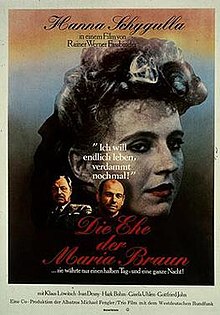 Story of movie The Marriage Of Maria Braun :
Story of movie The Marriage Of Maria Braun : 